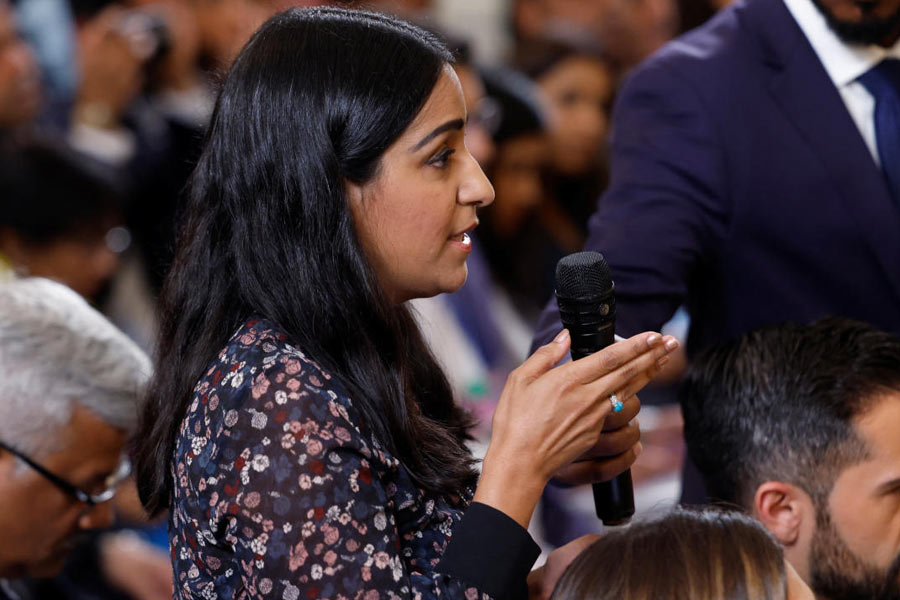The White House has condemned as "totally unacceptable" the harassment of a US journalist on social media for asking Prime Minister Narendra Modi a question at his joint press conference here with President Joe Biden.
Last week, The Wall Street Journal reporter Sabrina Siddiqui asked Prime Minister Modi about the rights of minorities in India and what steps his government was willing to take to improve them and also uphold free speech.
A day after the joint press conference, the reporter faced online abuse for questioning the prime minister, with some alleging that her question was "motivated" and calling her a "Pakistani Islamist".
"We're aware of the reports of that harassment. It's unacceptable. And we absolutely condemn any harassment of journalists anywhere under any circumstances. That's completely unacceptable. And it’s antithetical to the very principles of democracy that were on display last week during the state visit,” National Security Council Coordinator for Strategic Communications John Kirby told reporters on Monday in response to a question.
In response to Siddiqui’s question, Prime Minister Modi had strongly defended India's record on democracy and his government's performance and human rights, saying that the basic foundation stone of his government has been 'Sabka Saath, Sabka Vikas, Sabka Vishwas and Sabka Prayas', which means together for everyone’s growth, with everyone’s trust.
"India is a democracy. And as President Biden said democracy is in the DNA of both India and America. Democracy is in our spirit. Democracy flows in our veins. We live democracy. Our forefathers moulded it in words, which we call the Constitution," he said.
"Our government runs on the fundamental principles of this Constitution. We have proved that democracy can deliver. When I say deliver it means there is no place for discrimination on the grounds of caste, creed, gender, religion,” Modi said.
White House Press Secretary Karine Jean-Pierre said, "We're certainly here, at the White House, under this administration, committed to the freedom of the press, which is why we had the press conference last week." "We certainly condemn any efforts of intimidation or harassment of a journalist or any journalist that is just trying to do their job. And so, I just want to be very clear about that,” she said.
In response to a question on whether Prime Minister Modi and President Biden had discussions on issues such as press freedom and human rights, Jean-Pierre said President Biden will "never shy away" from having those conversations with a world leader or a head of state when it comes to human rights.
"He has done that throughout the past two years and through his career as a vice president and certainly as a senator. I’m not going to get into private conversations, but I think we have made ourselves very clear here on our view. And I'll just leave it there,” she said.
Jean-Pierre said the US was committed to the freedom of the press, which is why the joint press conference was held.
"We thought it was important for you all to hear from both, not just from the President, but also from the Prime Minister, and for journalists to be able to ask a question,” she said.
Meanwhile, the South Asian Journalists Association (SAJA) expressed support for Siddiqui in the wake of the online abuse against her.
“We want to express our continued support of our colleague @SabrinaSiddiqui who, like many South Asian and female journalists, is experiencing harassment for simply doing her job. Press freedom is the hallmark of any democracy and PM Modi leads the world's largest democracy,” SAJA said in a tweet.
A day after the joint press conference, Siddiqui took to Twitter and wrote, “Since some have chosen to make a point of my personal background, it feels only right to provide a fuller picture. Sometimes identities are more complex than they seem.”
Accompanying her tweet were two photographs in which she is wearing a blue jersey of the Indian cricket team, and an April 2011 picture with her father when India won the 2011 cricket World Cup.
Except for the headline, this story has not been edited by The Telegraph Online staff and has been published from a syndicated feed.










